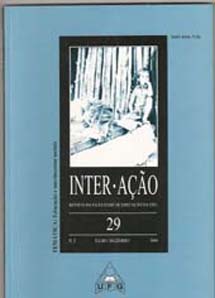EDUCAÇÃO E MOVIMENTOS SOCIAIS
DOI:
https://doi.org/10.5216/ia.v29i2.1413Abstract
Este artigo tem como objetivo analisar os movimentos populares no Brasil e sua interface com a educação. Com o método histórico são analisados movimentos como os da Cabanagem, Balaiada, Canudos, Formoso e Trombas, os quais deram importante contribuição à construção da sociedade brasileira. Entretanto, como a história dos vencidos serve para ilustrar a história dos vencedores, esses movimentos são simplesmente citados nos livros de história sem o devido aprofundamento. Este trabalho contém ademais dois relatos: um sobre o Movimento de Educação de Base (MEB) e outro sobre Movimento dos Trabalhadores Rurais Sem-Terra (MST). Por fim, é ressaltada a importância desses movimentos e feito um convite aos educadores para proporem novos métodos e projetos que tenham como fim um outro mundo possível.Downloads
Downloads
Published
How to Cite
Issue
Section
License
Inter-Ação uses the Creative Commons Attribution 4.0 License for Open Access Journals (Open Archives Initiative - OAI) as the basis for the transfer of rights. Open access means making documents available on the Internet free of charge, so that users can read, download, copy, distribute, print, search, or link to the full text of documents, process them for indexing, use them as input data for software programs, or use them for any other lawful purpose, without financial, legal, or technical barriers.
Authors publishing in this journal agree to the following conditions:
1) Authors retain copyright and grant the journal the right of first publication, with the work simultaneously licensed under the Creative Commons Attribution License, which permits redistribution of the work with attribution and first publication in this journal.
2) Authors are permitted to enter into additional, separate agreements for non-exclusive distribution of the version of the work published in this journal (e.g., for publication in an institutional repository or as a book chapter), with attribution and first publication in this journal.
3) Authors are permitted and encouraged to publish and distribute their work online (e.g. in institutional repositories or on their home page) at any time before or during the editorial process, as this may generate productive changes as well as increase the impact and citation of the published work.















